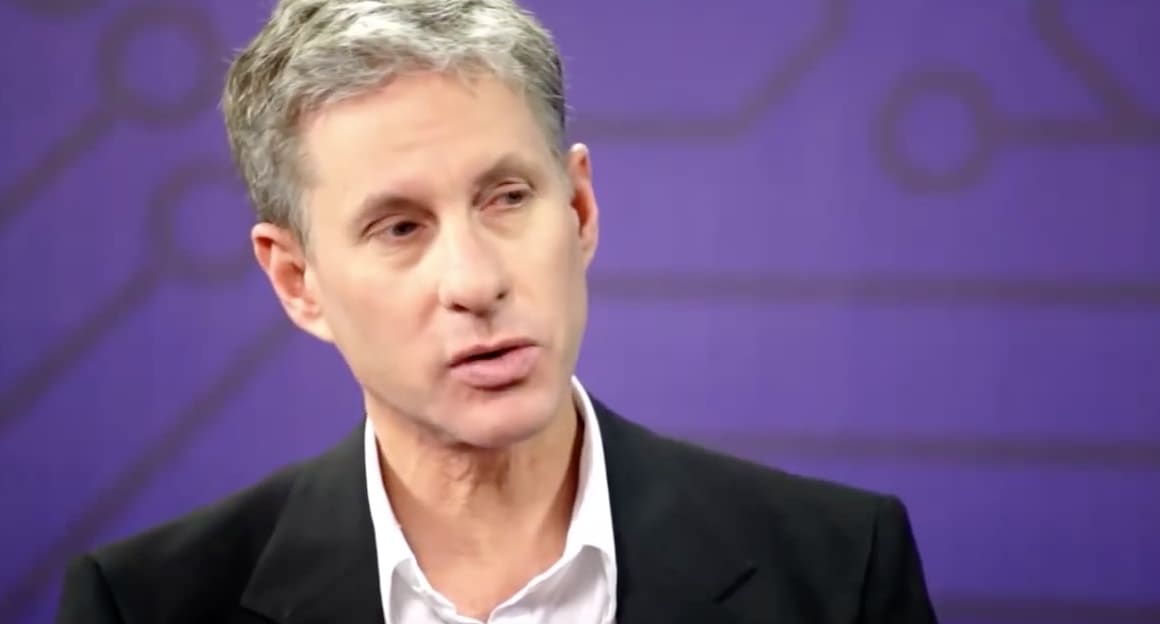Get the weekly summary of crypto market analysis, news, and forecasts! This Week’s Summary The crypto market ends the week at a total market capitalization of $2,17 trillion. Bitcoin continues to trade at around $62,300. Ethereum experiences no changes and stagnates at around $2,400. XRP is down by 2%, Solana by 1%, and Dogecoin by 3%. Almost all altcoins are trading in the red, with very few exceptions. The DeFi sector decreased the total value of protocols (TVL) to around…
Ripple and Strike Founders Share Opposing Views on Proof of Work
Both Ripple co-founder Chris Larsen and Strike CEO Jack Mallers spoke extensively about proof of work (POW) at Bloomberg’s Crypto Summit on Tuesday. While the former believes the consensus mechanism is an existential threat to the planet, the latter sees no way that Bitcoin could function without it.
Larsen: POW Has Poor Incentives
During his interview, Larsen described Bitcoin mining as a “problem” responsible for contributing to the worldwide climate crisis. Rather than castigating miners themselves, he blames Bitcoin’s programming for incentivizing its users to harm the environment.
Bitcoin mining – a nickname for the network’s POW process – involves users spending computational energy to create blocks. Each block comes included with a fixed Bitcoin reward, plus associated transaction fees. In general, the more energy miners spend, the more blocks they can mine – hence earning them more Bitcoin.
Mining has turned into a global industry that consumes more energy as Bitcoin’s price appreciates over time.
“The code is what sets the incentive,” Larsen explained. “We’ve got to change the incentive.”

By that, he means to change Bitcoin’s code to involve a less energy-intensive security process. In March, the co-founder began a campaign to transition Bitcoin to proof of stake (POS), a modern model of security by cryptocurrency, rather than energy.
However, Larsen seems to advocate for a different approach now. “I actually believe it would be a lost opportunity if Bitcoin changed to proof of stake,” he said, “because it does have an incredibly entrepreneurial, powerful mining industry.”
Instead, he floated a more ESG-compliant approach where Bitcoin’s rewards could be distributed based on direct air capture. The more CO2 one captures, the more Bitcoin they get.
Larsen acknowledged that there’s a largely green mix within the mining sphere, but believes this isn’t enough to offset Bitcoin’s long-term incentives.
Mallers: POW Makes Bitcoin Precious
Speaking on the same day, Strike’s Jack Mallers dismissed energy-related criticisms surrounding Bitcoin mining, when asked.
“Using energy is not a bad thing,” he said. “Using energy is implied in the growth of humanity.”

The CEO pointed out how Bitcoin’s energy use helps stabilize the electricity grid – unlike any other industry that uses power. “It’s just such an asinine, ridiculous, uninformed, uneducated opinion,” he continued.
Regarding the fundamentals of POW vs POS, Mallers explained that the former is necessary for Bitcoin to retain its commodity premium.
Specifically, mining Bitcoin must have a real-world cost if it is to serve as a reliable store of value. Under POS, creating new units is effectively “free” as long as one holds enough units of the currency. This, in turn, would make one’s relationship with Bitcoin a liability, since the state of the ledger could be determined by unofficial ‘stakeholders.’
“In theory, what you want is a monetary asset where there are no liability relationships,” said Mallers. “Proof of work solved that.”
Mallers also targeted FTX CEO Sam Bankman-Fried in June for suggesting that Bitcoin’s proof of work was a problem. “The energy concerns are nothing but a misunderstanding at best, and malicious information at worst,” he suggested.
FTX Reportedly Seeks More Funding After June Rescue Spending
Minecraft Prohibits NFTs, Blockchain Usage on Game servers
Written by
More author posts
Publish your own article
Guest post article. Guaranteed publishing with just a few clicks
START PUBLISHING ADVERTISE WITH US






